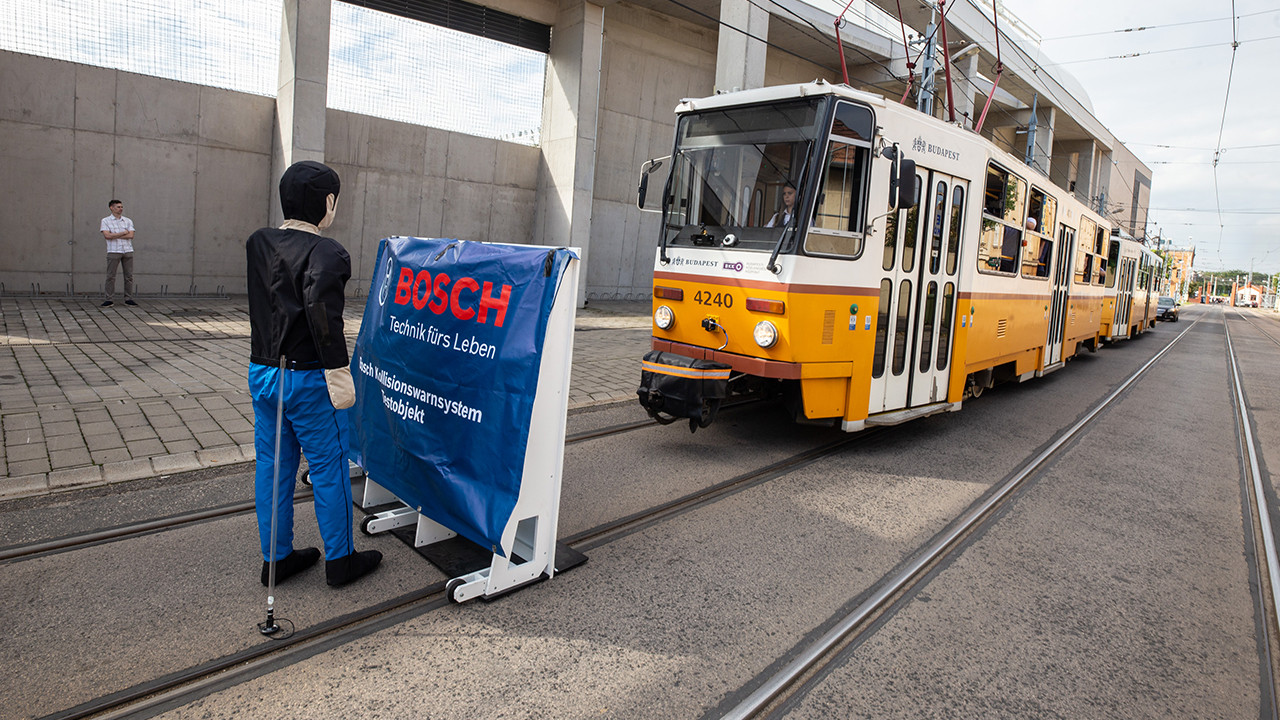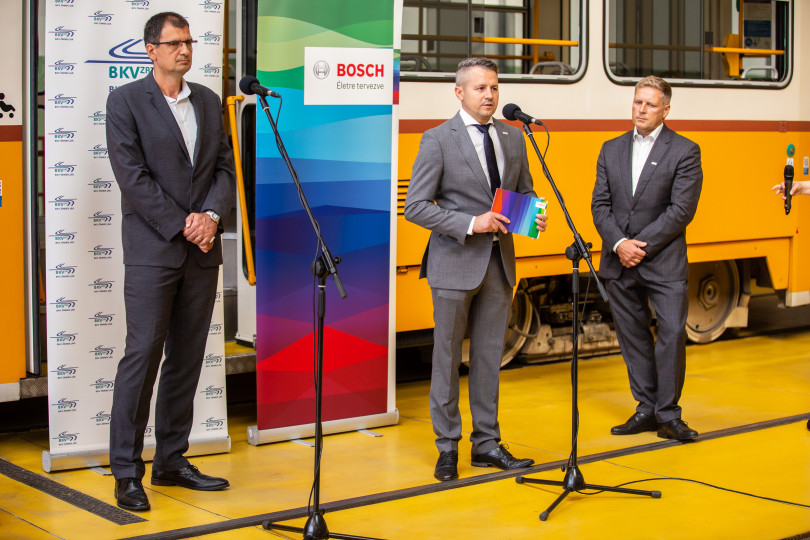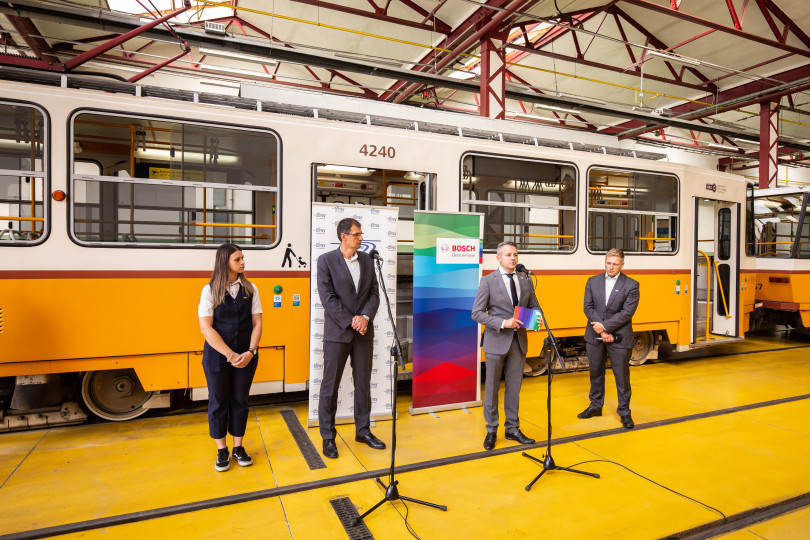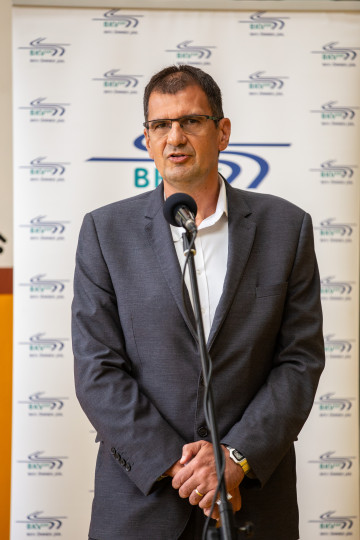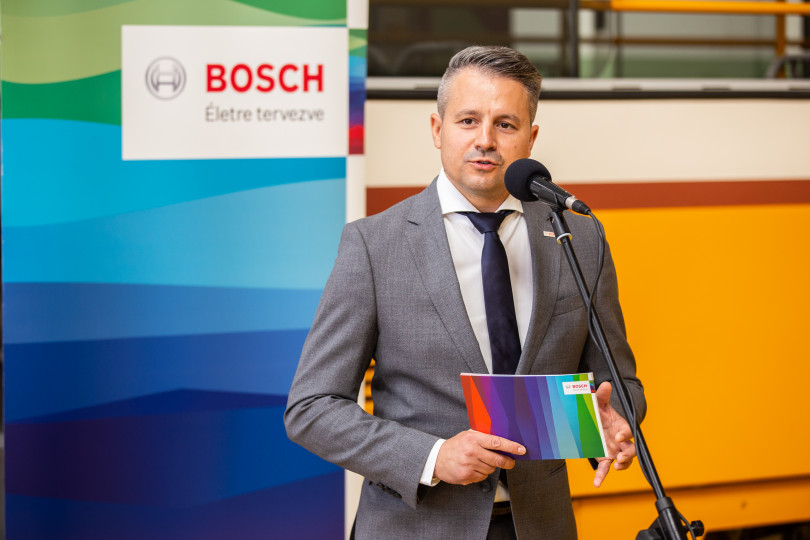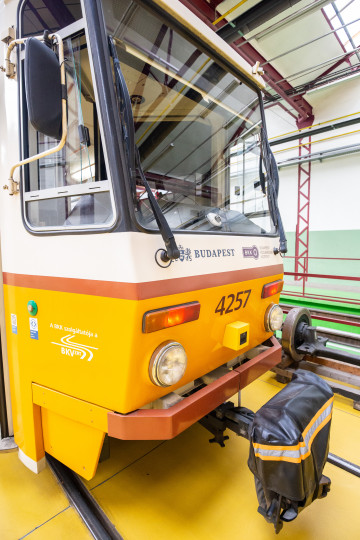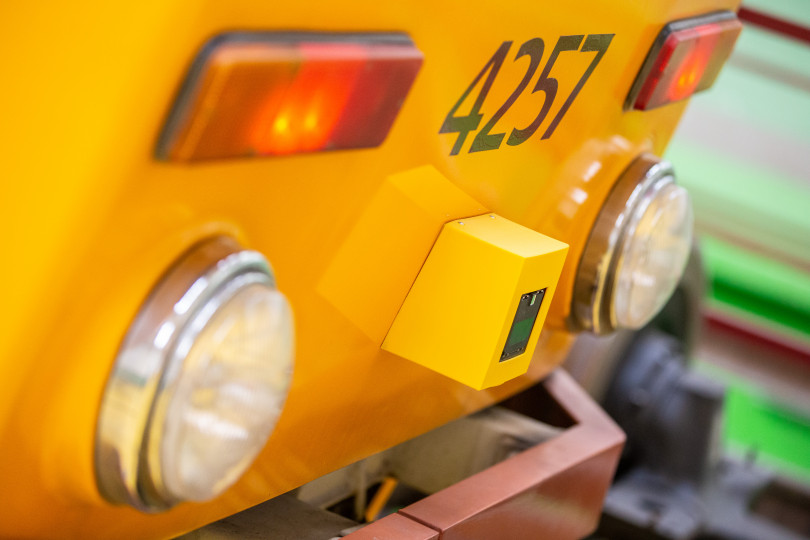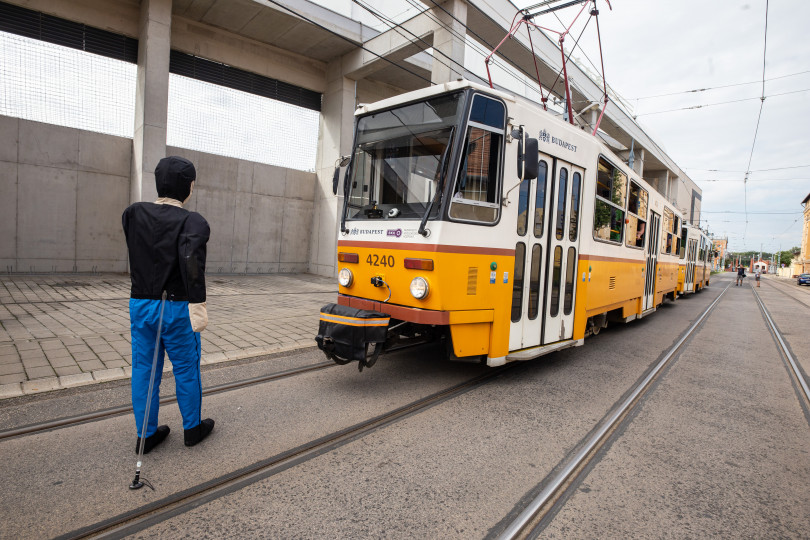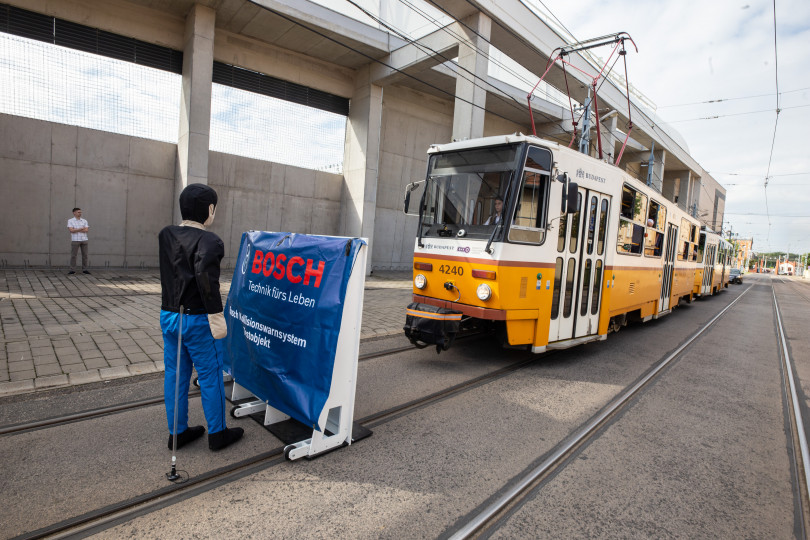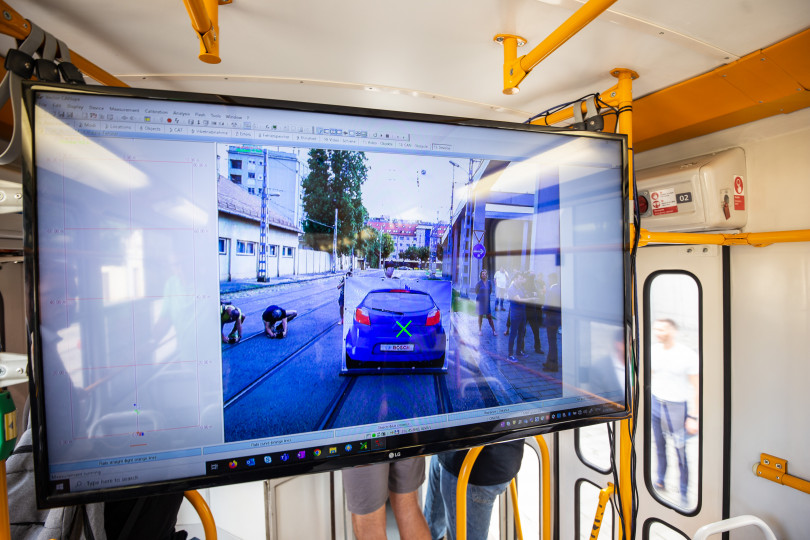Budapest – Bosch's new collision warning technology, which has already been proven abroad and in Debrecen, has been installed for testing purposes on two of BKV’s (Budapesti Közlekedési Vállalat, the public transport company of Budapest) Tatra trams, which work mainly on line 41, and will contribute to even safer transport. In the capital's traffic, collisions can easily occur with significant material damage or even bodily harm. Bosch's innovative collision warning system alerts tram drivers in case of danger, allowing them to apply the brakes seconds earlier and avoid minor collisions and accidents.
"This technology is truly invented for life, true to the Bosch slogan, and is an effective way to help tram drivers do their tiring work, which requires a high level of concentration. Examples from abroad show that it can halve the number of accidents involving trams. The technology not only saves lives, it also saves significant costs for operators and helps ensure reliable, on-schedule operations," said Zoltán Szőke, vice president engineering automated driving in Hungary at Bosch.
Commenting on the collision warning system testing, Péter Borbás, BKV's tram operations director, stressed that BKV is constantly striving to make the capital's transport, including public transport, as safe as possible. "As the largest public transport operator in Budapest, our commitment and involvement is to consider any technology that can help BKV achieve this goal. BKV has always supported methods that promote accident-free transport, so our participation in the current project – by providing the tram and the test environment in the capital – was not in question."
The technology, which is tailored to the trams, was developed jointly by engineers from the Bosch Engineering Center Budapest and Bosch Engineering GmbH, and the camera on which the system is based, as well as the radar sensor, is manufactured at the group's site in Hatvan. The technology consists of a multifunction camera, a radar sensor and a control unit. The special data camera provides an accurate picture of traffic conditions and tracks and predicts movements, while the radar sensor continuously monitors the track and detects anything that might cross the tram's path.
Tailoring the technology to the tram line
The collision warning system is being individually calibrated and trained for the traffic environment of Budapest's trams. In the commissioning phase, the tram equipped with sensors and cameras has been driven thousands of test kilometers in both inner-city and suburban environments to fine-tune the system.
The collision warning system mounted on a pair of Tatra trams in Budapest has already warned more than ten times on its first trip, but during the last three months of testing, nearly 1,000 warnings have been recorded over a distance of almost 12,000 kilometers. In more than 500 situations, the system has helped to reduce the risks in everyday driving by raising drivers' awareness and thus preventing potential accidents.
Zita Hella Varga
Phone: +36 70 667-6374
Bosch has been present in Hungary since 1898 with its products. After its re-establishment as a regional trading company in 1991, Bosch has grown into one of Hungary’s largest foreign industrial employers with currently eight subsidiaries. In fiscal 2021 it had total net sales of 1,711 billion forints and consolidated sales to third parties on the Hungarian market of 273 billion forints. The Bosch Group in Hungary employs more than 17,000 associates (as of December 31, 2021). In addition to its manufacturing, commercial and development business, Bosch has a network of sales and service operations that covers the entire country.
The Bosch Group is a leading global supplier of technology and services. It employs roughly 402,600 associates worldwide (as of December 31, 2021). The company generated sales of 78.7 billion euros in 2021. Its operations are divided into four business sectors: Mobility Solutions, Industrial Technology, Consumer Goods, and Energy and Building Technology. As a leading IoT provider, Bosch offers innovative solutions for smart homes, Industry 4.0, and connected mobility. Bosch is pursuing a vision of mobility that is sustainable, safe, and exciting. It uses its expertise in sensor technology, software, and services, as well as its own IoT cloud, to offer its customers connected, cross-domain solutions from a single source. The Bosch Group’s strategic objective is to facilitate connected living with products and solutions that either contain artificial intelligence (AI) or have been developed or manufactured with its help. Bosch improves quality of life worldwide with products and services that are innovative and spark enthusiasm. In short, Bosch creates technology that is “Invented for life.” The Bosch Group comprises Robert Bosch GmbH and its roughly 440 subsidiary and regional companies in some 60 countries. Including sales and service partners, Bosch’s global manufacturing, engineering, and sales network covers nearly every country in the world. With its more than 400 locations worldwide, the Bosch Group has been carbon neutral since the first quarter of 2020. The basis for the company’s future growth is its innovative strength. At 128 locations across the globe, Bosch employs some 76,100 associates in research and development, of which more than 38,000 are software engineers.
Additional information is available online at www.bosch.hu, iot.boschblog.hu, www.bosch.com, www.iot.bosch.com, www.bosch-press.com, www.twitter.com/BoschPresse

